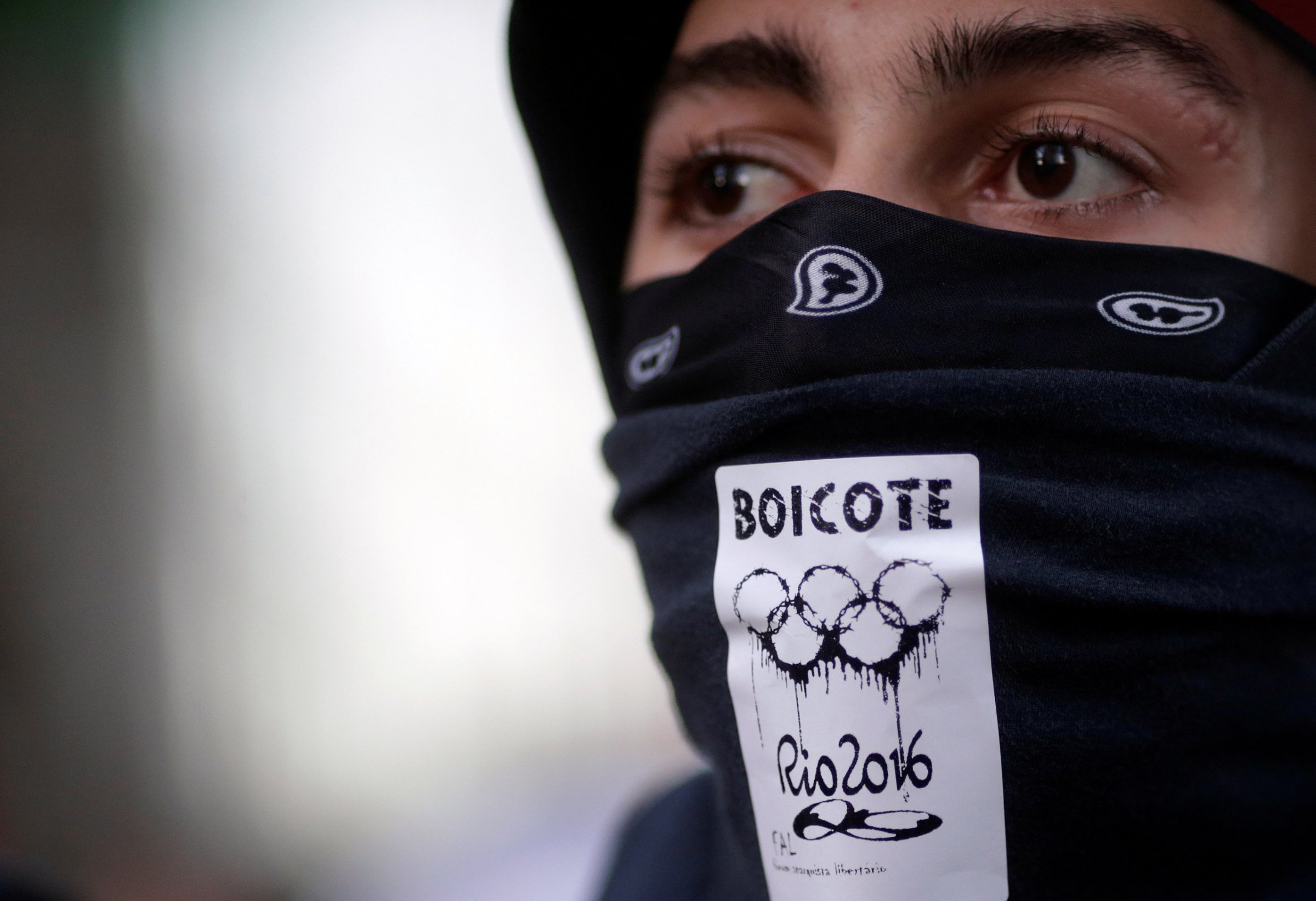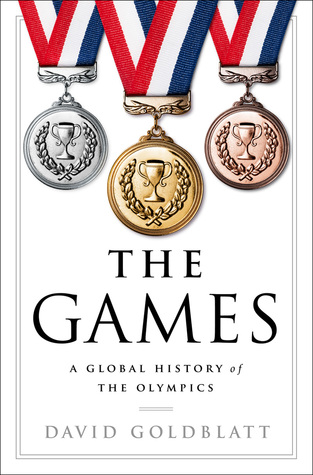
—Protests against the 2016 Rio Summer Olympics are not the first anti-Olympic movement, nor are they likely to be the last.
It has taken until 2016 for most of the world to wake up to the disastrous urban consequences of the Rio 2016 Games, but for almost a decade a small network of Brazilian activists—the Comitê Popular Rio Copa e Olimpíadas—has been making the augment and taking to the streets in protest. Their cause was turbo-charged in 2013 when a huge spontaneous public demonstration broke out during the Confederations Cup (the dress rehearsal for the 2014 football World Cup) in protest over the corruption and costliness of Brazil’s sporting mega-events.
Since then, the impact of anti-Olympic efforts in Brazil has been limited. Political debate has been consumed by the desperate state of the economy, a constitutional crisis and the Petrobras corruption scandal. A massive security operation and the militarization of public spaces ensured that protesters were a marginal presence at the 2014 World Cup. With Rio in an effective state of emergency, the Olympics are unlikely to be any different.
But protests are an important part of Olympic history. Activists help politicize and publicize the social, environmental and economic consequences of the Games. Over time, the issues that protesters have adopted have shifted from who can and can’t compete to the belief that the global sporting spectacular, in alliance with over-blown urbanism and city branding, has become a disaster. Here are few examples of protests to Olympics over the years.
1932
Alongside the Los Angeles Summer Games in 1932, the American Communist Party helped establish the Counter Olympic Committee and staged its own small workers’ games in protest over the racism it considered to be endemic in American sport.

1936
Prior to Adolf Hitler’s decision to embrace the 1936 Berlin Olympics as brilliant instrument of propaganda, many Nazi ideologists saw them as dangerously internationalist and a Jewish conspiracy. Thus in early 1933, Nazi-supporting students, organized as the Kampfring gegen die Olympischen Spiele—the Fight Against the Olympic Games—dug up the running track at the Berlin athletics stadium and planted small “Germanic” oaks in the lanes.
1976
A coalition of environmentalists and anti-tax groups won a referendum that stopped the proposed Denver Winter Games from happening in the city.
1992
When Amsterdam was proposed as the host of the 1992 Games, a coalition of environmentally inclined local councillors and the city’s extensive squatting movement formed a campaign called “Nolympics” to oppose it. The organization’s video featured a nightmare tour through the city’s traffic jams, examined the appalling rate of bike thefts and muggings, and featured images of an Olympic torch used to light bombs. A gathering of officials from the world’s international sports federations, waiting for a canal-boat tour, were pelted with tomatoes and eggs by activists before the riot police charged them all. When the International Olympic Committee convened in Lausanne for the deciding vote, the protesters joined them, surrounding their deluxe shuttle buses and letting off an Olympic-torch smoke-bomb at precisely the moment that the committee gathered for its traditional photograph. The Olympics went to Barcelona.
2000—Berlin
Berlin’s bid for the 2000 Summer Games was first conceived before the fall of the Wall, but the reunification of the city gave the organizers real hope that they might be in the running. The city’s many alternative cultures and communities had other ideas. The IOC congress, held in Berlin in 1991, required the protection of 1,500 police officers, and 21 arrests were made during three days of citywide protest, orchestrated by the city’s Anti-Olympic Committee. A demonstration on bikes, involving more than 600 cyclists, was broken up by truncheon-wielding police.
Over the next 12 months, Berlin was hit by a scattergun of Olympic protests: the Carl Diem plaque, honoring the chief organizer of the 1936 games, was stolen from Berlin’s Olympic stadium and held ransom; banks associated with the bid were attacked with firebombs; and East Berlin’s cable television suddenly disappeared and its junction boxes were found plastered with anti-Games stickers. When the IOC made a final visit, in spring 1993, about 10,000 people took to the streets, forcing the police to cordon off large areas of the city. The Games went to Sydney.
2000—Sydney
In the run-up to the Sydney Games, the Anti-Olympic Alliance made its presence felt. Protesters staged a mock medal ceremony in the central business district: landlords won the bronze for “opportunism and greed,” silver went to real-estate agents for “ingenuity and greed” and gold went to the developers for “world-record profits in these hard times.” When the IOC coordination team made a visit to Sydney in February 2000, they were met by protesters in gorilla skins and orange boiler suits. In May, the city government and organizing committee had to rely on a significant military mobilization including three Black Hawk helicopters to clear about 150 protestors from Bondi Beach, where they planned to erect a huge beach-volleyball stadium.
2010—Vancouver
Vancouver generated the most multifaceted and vociferous anti-Olympic protests of all. Here the anti-Olympic coalition included: native Canadians protesting the desecration of their ancestral lands by Olympic infrastructure; environmentalists appalled by the destruction of precious forests and wilderness by the winter sports industry; churches and campaigners for the homeless, infuriated by the lack of social housing in the olympic village and the aggressive gentrification of the city’s poorest zones. This kind of diversity was able to sustain an Olympic protest village in downtown Vancouver for the entire duration of the games, a provocative march on the central business district, and daily symbolic actions and interventions.
2016
The Brazilian security forces are unlikely to be tolerant of dissent and the occupation of public spaces. But that the protests have been able to survive at all is a testament to the now long history of anti-Olympic movements and the cumulative case they have made against Olympic urbanism.
More Must-Reads from TIME
- Cybersecurity Experts Are Sounding the Alarm on DOGE
- Meet the 2025 Women of the Year
- The Harsh Truth About Disability Inclusion
- Why Do More Young Adults Have Cancer?
- Colman Domingo Leads With Radical Love
- How to Get Better at Doing Things Alone
- Michelle Zauner Stares Down the Darkness
Contact us at letters@time.com